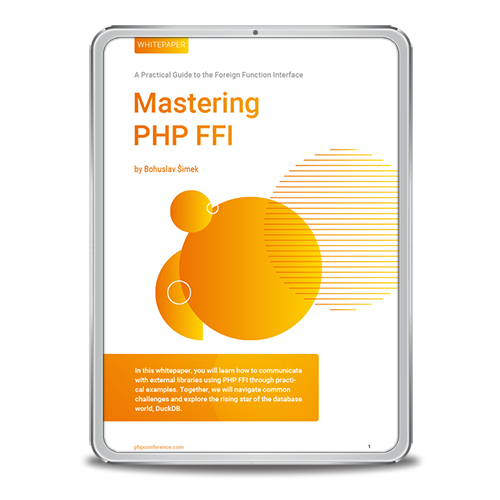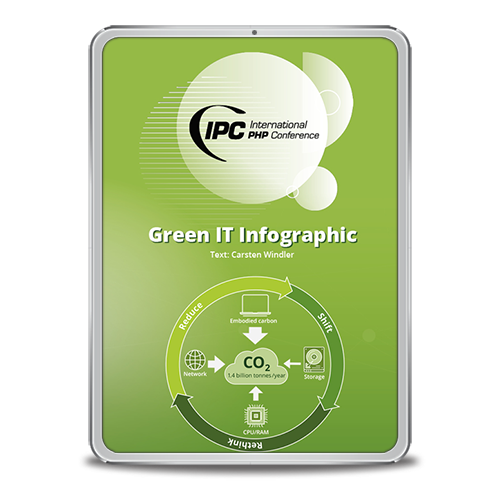Modern Day Web Development
Modern day web development proves critics wrong. From mobile to desktop, from microcontrollers to gaming consoles, from TVs to cars – the web is literally everywhere, on every device. And with the web came the technologies.
Web Standards, such as HTML5 and CSS3, provide powerful techniques for beautiful and functional designs, JavaScript has become a blazing fast technology applied by developers from every division, and PHP … well, PHP has written its very own success story in the past few years. And so has the International PHP Conference.
There is always one more thing
One of the most impressive characteristics of all these technologies is the fact that they do not rest on their laurels. Every single technology among them is constantly improved by a huge and enthusiastic community.
JavaScript, for example, contains powerful features and great engines, provided by companies like Google, Microsoft or Apple. But/In addition, the community – sometimes driven by companies, sometimes driven by individuals – is working on frameworks which are aiming at helping developers code even more incredible applications. Just take a look at Vue.js, React or Angular, Google’s great “web door opener” for self-proclaimed enterprise developers.
Also, JavaScript managed to bring together developers from every possible language, no matter if they are native Java, C#, .NET, $yourTechnologyHere developers.
We are encountering pretty much the same situation in the PHP ecosphere: There are lots of great frameworks – like e.g. Symfony, Laravel, Yii, the Zend Framework – helping developers all over the world to build stable, bullet proof enterprise-ready applications. And this is only the tip of the iceberg. Because there is still this one more thing …
To infinity and beyond
The true strength of PHP is its core community. At the latest with the development of PHP 5.3 the language got the boost it desperately needed. All of a sudden a long overdue professionalism hit the community; new features where discussed in a RFC process, and a defined and obligatory roadmap provided planning reliability for developers and companies.
And then PHP 7 appeared, providing a tremendous performance boost and tons of new and long-awaited features. A huge success from today’s perspective: PHP 7 has captured the second place in PHP version statistics with a share of over 35 percent – all in the first year of its release. That’s the way to go.
Professionalism everywhere
Testing is the fundament for providing high quality software. So is taking the responsibility for your application, establishing shorter delivery cycles, and delivering faster changes of functionality by making use of container and cloud technologies as well as microservices.
DevOps promotes the collaboration between software developers and the IT operations team through the entire service lifecycle; because responsibility does not end with the delivery of the application. Together Devs and Ops are able to automate the software delivery and quality assurance processes while at the same time evolving and operating rapidly changing systems at scale.
The good news is, that the web community – PHP, JavaScript and the frontend developers – internalised these virtues from the very beginning of the movement. All of them proved that they are able to react flexible to their fast changing environment.
You are the web!
This is where everything comes together. The International PHP Conference is not only the world’s first PHP conference, but the place where developers from all over the world come together to make the web a better place. And it is not only a place for one community – it is the place for all web-relevant communities.
You will be able to meet well-known PHP and JavaScript experts and you will be able to gain great insights into web design topics, agile methodolgies, and web architecture.
And of course, you guessed it, there is one more thing: you will also be able to attend every single session of webinale, the holistic web conference, which takes place parallel to IPC. The webinale covers topics from digital marketing and business innovation all the way to user experience design.
You don’t have to be afraid of the internet and its technologies; the IPC is the place where you will learn how to tame the monster(s).






